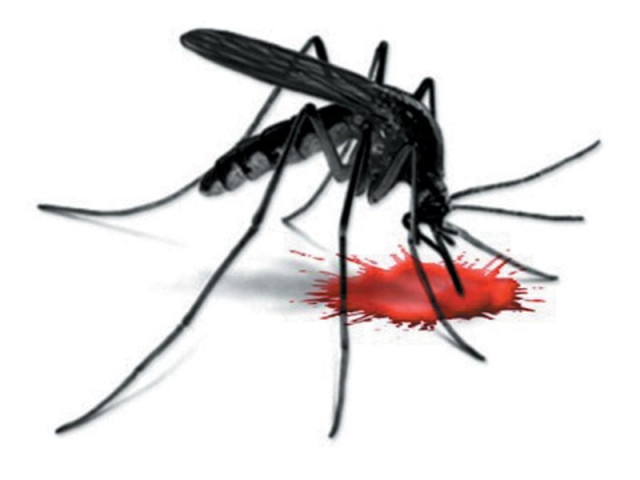With dengue season approaching, no prevention measures in sight
The mosquito that causes the disease breeds when there’s plenty of stagnant water around.

PHOTO: FILE
Even though the monsoon season - the period in which the number of dengue cases are expected to spike - is just around the corner, the health department has yet to start a campaign against the disease and set up isolation wards.
The increase in the number of cases is linked to the swell in the mosquito population. Aedes aegypti, the black and white mosquito which carries the virus, breeds when there is plenty of stagnant water around. Even though Karachi has only witnessed sporadic drizzles, the incidence of the disease has already started to go up. Dr Shakeel Aamir Mullick, an official from the cell, added that around 259 cases have been registered in Sindh this year. Of them 248 are residents of Karachi. Two people, a resident of Gulistan-e-Jauhar and another of North Nazimabad, died last week after suffering from dengue fever.
On the condition of anonymity, a health official said that an isolated ward has yet to be set up for dengue patients, even though the disease typically rears its head in the months of June, July and August.

While talking to The Express Tribune, Dr Saqib Hussain Ansari, a consultant haematologist at the National Institute of Blood Diseases, said that he felt that last year, the cell had been more active in keeping a check on the spread of the disease. “The mosquito which causes dengue fever becomes active in areas where the temperature is relatively high,” he said.
“Since the monsoon is now upon us the threat of dengue has increased. People need to start taking precautions: they need to stock up on anti-mosquito sprays and cover water pots to avoid the spread of the disease.” He urged the government to ensure that medicines to tackle the disease are available at government hospitals and set up isolation wards.
Lessons from the past
Around this time last year, the health secretary and the health minister had asked all hospitals to reserve beds for dengue patients and ensure that kits to test for the disease as well as ample medicines were in stock. Private hospitals had been told to report any cases of the virus to the surveillance cell. Health offices in Hyderabad and Civil hospital had already been working round-the-clock.
Then there was the public awareness campaign in schools and colleges around the province. Pamphlets about the disease were distributed throughout the province and a media campaign had also been launched. Fumigation campaigns were also in full swing. The drives have yet to be started again because Karachi Metropolitan Corporation’s employees are on strike over non-payment of salaries. KMC officials couldn’t be reached for comment despite several attempts.
While talking to The Express Tribune, Dr Qaisar Sajjad of the Pakistan Medical Association’s Karachi chapter, said, “The situation is alarming. This month has seen a growth in the number of dengue fever cases. The government should take immediate steps to counter any threats.”
The cell’s role
When asked about why the steps taken last year had not been implemented as yet in the current season, Dr Mullick of the surveillance cell said that the body’s only job is to monitor how many cases of the disease emerge in the city. “It isn’t our duty to admit the people as we have no facilities. We just maintain the data of dengue patients and nothing else.” He said 15 people suffering from the disease were still admitted to different hospitals in Karachi while seven have been discharged in recent days.
Published in The Express Tribune, June 17th, 2013.



















COMMENTS
Comments are moderated and generally will be posted if they are on-topic and not abusive.
For more information, please see our Comments FAQ